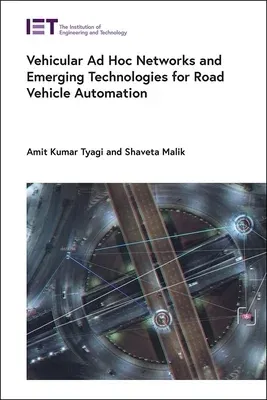The automation of road vehicles is still developing, moving towards
improved technology, safety, energy and fuel efficiency, comfort,
economic growth, and real-world applications. Vehicle connectivity and
information exchange over the road is an essential requirement for the
future of automated driving. This book is intended to help bridge the
gap between theory and applications of autonomous vehicles.
Vehicular Ad Hoc Networks and Emerging Technologies for Road Vehicle
Automation covers autonomous road vehicles and systems, with a
particular focus on vehicular ad-hoc networks (VANETs). VANETs are a key
part of the intelligent transport systems framework. They are created by
applying the principles of mobile ad-hoc networks to vehicles; that is,
the spontaneous creation of a wireless network of mobile devices based
on inter-vehicle communication. Coverage also includes further aspects
of autonomous road vehicles, including hybrid vehicles, autonomous
intelligent vehicles, and autonomous decentralized systems (ADS).
The book is essential reading for researchers and advanced students from
academia, industry and government working on the automation of road
vehicles. Additionally, it is a helpful resource for students,
researchers and newcomers to the field; providing an in-depth
understanding of autonomous road vehicles, their internal structure,
types, and fundamental principles, helping to inform and direct their
research, and identify challenging areas and problems where further
investigations are needed.

